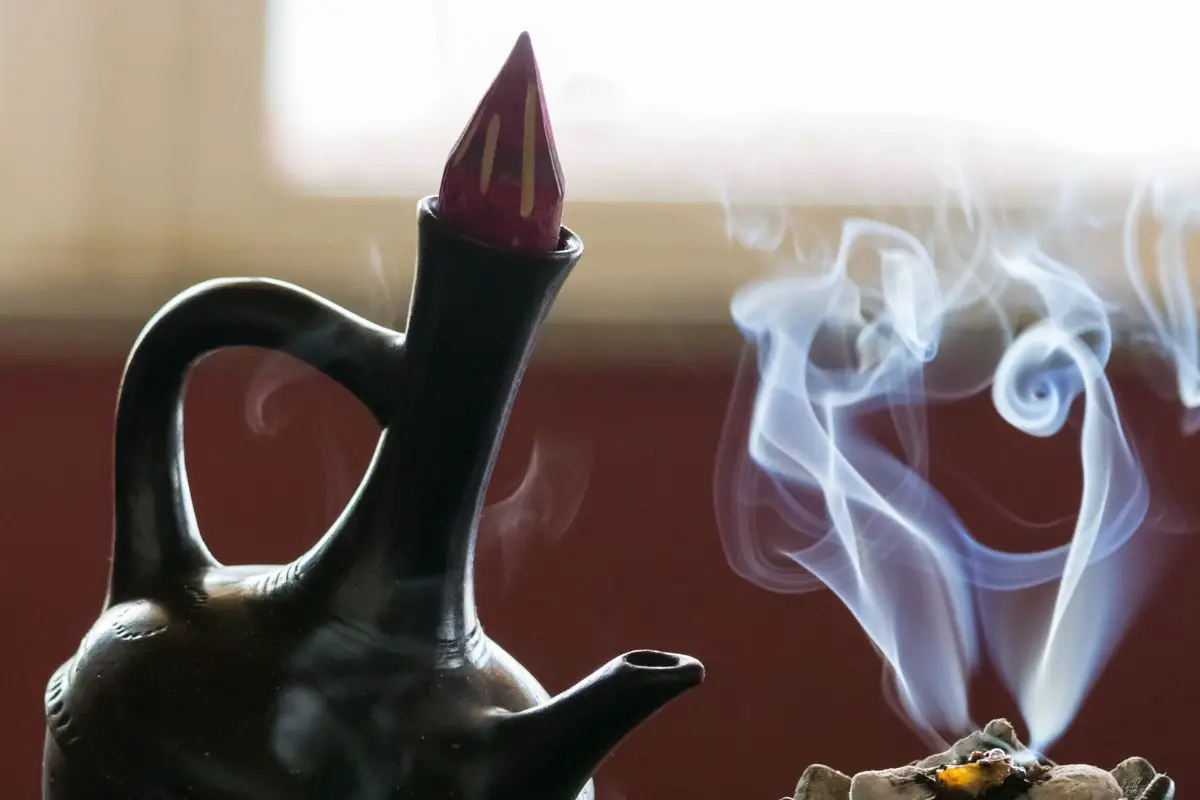In this article, readers will learn about the rich history and cultural significance of coffee in Ethiopia. The piece delves into the historical background of coffee, its cultivation, and its impact on the Ethiopian economy. The traditional Ethiopian coffee ceremony is also explored, discussing the preparation, significance, and etiquette involved. Furthermore, the article highlights coffee’s role as a symbol of hospitality in Ethiopian society, and its importance in cultural celebrations, such as weddings and religious festivals. Lastly, readers will discover the modern adaptations of coffee culture in Ethiopia and the influence of globalization on traditional coffee practices.

Historical Background of Coffee in Ethiopia
The Origin of Coffee and the Ethiopian Legend of Kaldi
Ethiopia, often referred to as the birthplace of coffee, has a deep-rooted history with the beloved bean. The origin of coffee can be traced back to the Ethiopian highlands where it naturally grew wild, specifically to the region of Kaffa, from which the word “coffee” originates.
The famous Ethiopian legend of Kaldi, a 9th-century goat herder, is said to have discovered the energizing effects of coffee beans. According to the tale, Kaldi witnessed his goats becoming more lively and spirited after eating the red cherries from the mysterious plant. Intrigued, Kaldi shared his findings with a local monastery, whose monks then started to investigate the plant and soon discovered that its beans had the ability to keep them awake during nighttime prayers.
This legend underlines the long-standing association between Ethiopia and coffee. Although the legitimacy of Kaldi’s story cannot be confirmed, it is widely believed to have some truths in it as a representation of early human encounters with the coffee plant in Ethiopia.
The Spread of Coffee across the Ethiopian Empire
Coffee cultivation in Ethiopia started around the 10th century, with the knowledge and use of coffee spreading across the region over time. Ethiopian people began to domesticate and cultivate coffee for both local consumption and trade with neighboring countries.
By the 15th century, coffee consumption had become a significant part of Ethiopian culture, with a unique brewing method known as the Ethiopian coffee ceremony being integral to Ethiopian identity. This ceremony, which involves the traditional way of preparing and serving coffee, is still practiced today in Ethiopia and remains an important social activity amongst families and communities.
As coffee gained popularity in Ethiopia, its cultivation began to extend to other regions within the empire. Ethiopian traders and travelers contributed to the spread of coffee by exchanging knowledge and seeds with other countries, particularly in the Arabian Peninsula. This exchange laid the groundwork for coffee cultivation to expand and thrive in regions like Yemen, from where coffee would eventually make its way to Europe and the rest of the world.
Impact of Coffee Cultivation on the Ethiopian Economy
Coffee has had a significant impact on the Ethiopian economy and remains one of the country’s most valuable natural resources. It plays a crucial role in contributing to Ethiopia’s GDP, with coffee being the nation’s number one export commodity.
The practice of cultivating coffee in Ethiopia has evolved considerably since its early beginnings. Historically, coffee was primarily grown in the traditional agroforestry system, where coffee plants were intercropped with various other plants and trees in a diverse ecosystem. This method not only protected the coffee plants from pests and diseases, but it also helped maintain soil fertility and uphold environmental sustainability.
Over the years, the Ethiopian coffee sector has experienced growth and expansion, with smallholder coffee producers remaining at the core of the industry. There are over 15 million people in Ethiopia who depend on coffee farming and related activities for their livelihoods, making it a pivotal component of the rural economy.
The Ethiopian government has prioritized the development of the coffee industry with the implementation of various strategies and initiatives. These efforts have been aimed at improving coffee production both in quantity and quality, to not only meet domestic demand but to also enhance Ethiopia’s coffee exports on the international stage.
Moreover, Ethiopian coffee is renowned for its diverse range of flavors and aromas, attributable to the country’s unique geography, climate, and numerous indigenous coffee varieties. This has made Ethiopian coffee highly sought after and appreciated by coffee enthusiasts and connoisseurs globally.
In summary, the Ethiopian coffee industry plays a vital role in shaping the country’s economy and cultural identity. From the legendary story of Kaldi and the birth of coffee to the modern-day Ethiopian coffee ceremony, the importance of coffee in Ethiopian history and society is complex and enduring. Over the centuries, the cultivation and consumption of coffee have evolved, but its significance and place in Ethiopia have remained constant.
Ethiopian Coffee Ceremony
The Ethiopian coffee ceremony is an integral and revered part of Ethiopian culture. It is a ritual that has been practiced for centuries and is a symbol of hospitality, respect, and togetherness in Ethiopian society. The ceremony is not only about enjoying a cup of coffee, but it is also about building relationships and connecting with family, friends, and community members.
Traditional Coffee Ceremony Preparation
The preparation of the coffee for the ceremony is an intricate and skillful process that is typically performed by the woman of the household. There are several steps involved in preparing the coffee, including selecting and preparing the green coffee beans, roasting the beans, grinding the beans, and brewing the coffee.
The Green Coffee Beans
To prepare for the ceremony, the hostess first selects fresh, green coffee beans. It is essential to choose high-quality beans as they directly impact the flavor of the coffee. The unroasted beans are cleaned thoroughly with water to remove any dirt, impurities or residues.
Roasting the Beans
Once the green coffee beans are cleaned, they are placed in a flat, metal pan and roasted over an open flame. The beans are constantly stirred to ensure even roasting and prevent them from burning. As the beans roast, they produce a dark brown color and a rich, earthy aroma. The hostess determines when the beans are adequately roasted based on their appearance and aroma.
Grinding the Beans
After the beans are roasted, they are cooled and then ground using a traditional mortar and pestle, called a “mukecha” and “zenezena” in Amharic, respectively. Grinding the beans by hand ensures a consistent, fine consistency that is necessary for making a properly brewed cup of Ethiopian coffee. The grinding process can be labor-intensive, but it is a crucial step in producing a rich and flavorful cup of coffee.
Brewing the Coffee
The ground coffee beans are placed into a clay coffee pot called a “jebena,” along with water. The jebena is placed over a charcoal stove, and the coffee mixture is slowly brought to a boil. Once the coffee is ready, the jebena is removed from the heat and allowed to rest for a short time to allow the coffee grounds to settle at the bottom of the pot. The coffee is then carefully poured into small, handleless cups called “cini.”
Significance of the Ceremony in Ethiopian Society
The Ethiopian coffee ceremony holds a deep, cultural significance in Ethiopian society. It is a symbol of hospitality and respect, and it is an important social event in the community where people gather to discuss and share news, stories, and ideas. The ceremony also represents the importance of unity and togetherness, as family members, friends, and neighbors come together to enjoy each other’s company and savor the delicious aroma and taste of the coffee.
Ceremonial Accessories and Aesthetics
In addition to the jebena, cini, and other tools used in the preparation of the coffee, the Ethiopian coffee ceremony is also characterized by its unique accessories and aesthetics. These include the placement of the coffee service on a bed of freshly cut, fragrant grass or flowers, as well as the use of traditional, colorful, hand-woven cotton cloths called “gabi” that are draped over the hostess’ shoulders and around the ceremony area. Incense is usually burned alongside the ceremony, adding a pleasant aroma and adding to the overall ambiance.
Etiquette During the Coffee Ceremony
There is a certain etiquette that is observed during the Ethiopian coffee ceremony. Guests are expected to patiently wait while the coffee is being prepared and engage in polite conversation. Once the coffee is served, it is customary for guests to compliment the hostess on the quality and taste of the coffee. It is also customary to consume at least three cups of coffee during the ceremony, as it is believed that “Bereka,” blessings, come with the third cup. To refuse additional cups of coffee is considered impolite.
Overall, the Ethiopian coffee ceremony is a unique and cherished tradition that showcases the importance of hospitality, unity, and community in Ethiopian society. It provides a memorable, sensory experience that allows participants to savor the deep, rich flavors of Ethiopian coffee while connecting with one another in a meaningful and authentic way.
Coffee as a Symbol of Hospitality in Ethiopia

Offering Coffee to Guests as a Sign of Welcome
In Ethiopia, coffee plays a significant role in the culture and daily life. Serving coffee to guests is seen as a sign of welcome and hospitality, and turning down a cup of coffee can be considered disrespectful. When a guest arrives at an Ethiopian home, it’s customary for the host to prepare a traditional coffee ceremony. The ceremony, which includes the roasting, grinding, and brewing of coffee, signifies the importance of the guest’s visit and the warmth with which they’re welcomed.
Role of Coffee in Establishing and Strengthening Relationships
In Ethiopian society, coffee is more than just a beverage; it’s a social event that helps establish and strengthen relationships within the community. Sharing a cup of coffee can lead to deep conversations or important discussions. Friends, family members, and even strangers come together to bond over coffee, which often results in the forging of strong ties and lasting connections.
Coffee Ceremony as an Opportunity for Dialogue and Social Bonding
The Ethiopian coffee ceremony is an elaborate and time-consuming process that encourages socializing and bonding among participants. It typically involves roasting green coffee beans, grinding them, and then brewing the coffee using a traditional clay pot called a jebena. The ceremony is a slow, intentional process that creates an atmosphere of relaxation and encourages open dialogue among attendees. This ritual is performed up to three times a day and provides a space for friends, family, and neighbors to come together and engage in meaningful, heartfelt conversations.
Coffee Exchanges as a Vehicle for Community Support
As a symbol of hospitality, coffee also serves as a means of support within Ethiopian communities. Neighbors often exchange coffee beans or help each other with the preparation and brewing process. This exchange strengthens community bonds and fosters a sense of togetherness among those participating in the coffee rituals. In moments of celebration or during times of difficulty, coffee acts as a vehicle for showing solidarity and goodwill toward one another, reinforcing the importance of community in Ethiopian society.
Coffee and Ethiopian Cultural Celebrations
Coffee in Ethiopian Weddings
In Ethiopian weddings, coffee plays a central role in the festivities. After the wedding ceremony, the newlyweds and their close relatives partake in a coffee-drinking session that symbolizes the union of the two families. The bride’s family provides the coffee, and this act of serving the groom’s family symbolizes a gesture of submission and a desire for harmonious relations between the two families. The coffee ceremony during weddings also fosters a sense of unity, as it encourages friends and family to come together in celebration of the couple’s love.
Coffee in Ethiopian Religious Festivals and Ceremonies
Coffee is an integral part of Ethiopian religious events and ceremonies for both Christian and Muslim communities. In the Ethiopian Orthodox Church, coffee is offered during important celebrations such as Timkat (the celebration of Epiphany) and Meskel (the finding of the True Cross). Similarly, Muslim Ethiopians also include coffee in their religious rituals, such as the observance of Ramadan or the celebration of Eid al-Fitr. Regardless of the faith, the serving of coffee in religious ceremonies is an essential and sacred part of the festivities.
Coffee in Traditional Holidays and Family Gatherings
In Ethiopia, coffee is closely associated with traditional holidays and family gatherings. Significant events such as births, funerals, and rites of passage are all marked and celebrated by friends and family with coffee ceremonies. These ceremonies not only bring people together but also serve as occasions for families and friends to strengthen bonds, catch up on news, and provide support for one another in times of need.
Modern Adaptations of Coffee Culture in Ethiopia

Evolution of Ethiopian Coffee Shops and Cafés
Ethiopia has witnessed a significant evolution of its coffee shop and café culture throughout the years. As local and international visitors have been exposed to the traditional coffee ceremonies, there are now modern coffeehouses that serve as spaces for socializing and enjoying coffee in a more casual setting. These establishments provide a sense of relief from the rapid urbanization and modernization by preserving Ethiopia’s coffee traditions while also adapting to the changing tastes and preferences of the younger generation.
Impact of Globalization on Ethiopian Coffee Culture
Globalization has had a significant impact on Ethiopian coffee culture. Foreign influences, demand for coffee exports, and the growth of the international coffee market have all affected the role of coffee in Ethiopia’s economy and society. However, despite these changes, Ethiopia continues to hold strong to its coffee traditions and remains the birthplace of Arabica coffee. As Ethiopian coffee gains more international recognition and popularity, a greater emphasis is placed on preserving its unique heritage and cultural significance.
Preserving Traditional Coffee Practices in a Modern Context

In today’s fast-paced world, it can be difficult to maintain traditional practices, but Ethiopia has managed to preserve its coffee culture while adapting to modern lifestyle changes. As younger generations search for ways to connect with their roots, they often turn to traditional coffee ceremonies as a means of preserving their heritage. The unique experience and social aspect offered by these ceremonies provide a sense of belonging, familiarity, and cultural pride for modern Ethiopians. Consequently, it is evident that the coffee culture in Ethiopia continues to thrive and evolve, serving as a cherished symbol of hospitality, unity, and tradition.
FAQs on Coffee as a Symbol of Hospitality in Ethiopian Culture
1. What is the significance of the Ethiopian coffee ceremony?
The Ethiopian coffee ceremony is an important social event and ritual that symbolizes hospitality, respect, and friendship. The ceremony, which involves roasting, grinding, brewing, and serving coffee, provides an opportunity for community members to come together, share information, and strengthen bonds.
2. How is coffee traditionally prepared in Ethiopia?
In Ethiopia, coffee is typically prepared by roasting green coffee beans over an open flame using a pan called a brazier. The beans are then ground using a mortar and pestle, and the resulting powder is boiled with water in a clay coffee pot called a jebena. The brewed coffee is then served in small, handleless cups called cini.
3. Why is coffee such an important part of Ethiopian culture?
Coffee is deeply ingrained in Ethiopian culture as the birthplace of Coffea arabica, the plant species responsible for the world’s coffee supply. The beverage plays a significant role in social gatherings, religious ceremonies, and daily life, and has become a symbol of hospitality and community connection.
4. Are there any specific customs or rituals tied to the Ethiopian coffee ceremony?
Yes, the Ethiopian coffee ceremony has several specific customs and rituals. For example, the hostess often starts by burning incense and spreading fresh grass on the floor to create a welcoming atmosphere. Guests are served three rounds of coffee, known as abol, tona, and baraka, with each round symbolizing a different aspect of social connection and hospitality.
5. How has the Ethiopian coffee ceremony influenced global coffee culture?
The Ethiopian coffee ceremony has had a significant influence on global coffee culture, especially in terms of appreciating coffee’s social aspect and the craft of brewing. Specialty coffee shops and roasters worldwide have adopted elements of the ceremony, from offering single-origin Ethiopian coffees to incorporating traditional brewing methods, as a means to celebrate coffee’s rich origins and cultural connections.
6. Can visitors to Ethiopia participate in a coffee ceremony?
Yes, visitors to Ethiopia can often participate in or observe a coffee ceremony in various settings, such as local homes, restaurants, or coffee shops. The ceremony provides a unique opportunity for travelers to experience authentic Ethiopian culture and gain insight into the importance of coffee as a unifying symbol of hospitality and respect.